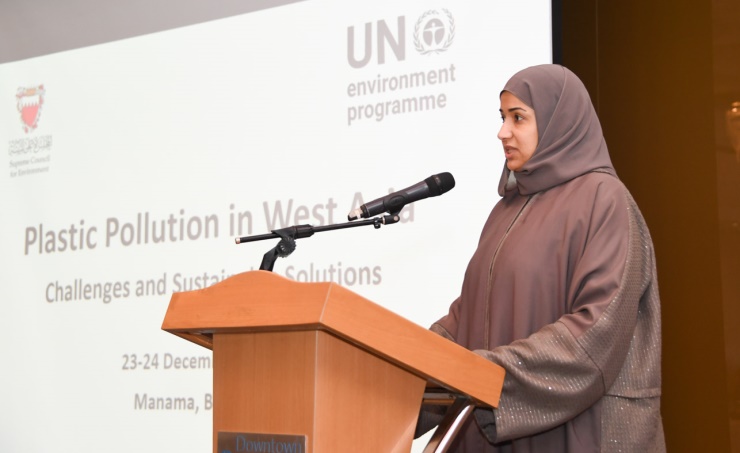Bahrain hosts regional workshop on plastic pollution

Manama, Dec. 23 (BNA): The Supreme Council for Environment (SCE) has organised a regional workshop on “Plastic Pollution in West Asia: Challenges and Sustainable Solutions”.
Ten countries, including Gulf Cooperation Council and Arab states, in addition to international plastic pollution experts, participated in the event, held in coordination with the UN Environment Programme's West Asia Office (UNEP West Asia).
Addressing the opening session of the workshop, Lama Al Mahroos, Director of the Environmental Monitoring and Protection Directorate at the SCE, lauded the ongoing constructive cooperation between the SCE and UNEP West Asia, resulting in many important projects, including the current regional workshop hosted by the kingdom.
Al Mahroos said that plastic pollution has become one of the major challenges facing all countries, noting that this regional workshop is within the framework of the UN-led global efforts to end plastic pollution, including pollution of the marine environment.
She stressed that this regional workshop provides a platform to exchange expertise, experiences and visions regarding policies and procedures that have already been taken and those that are still under study to end plastic pollution, noting that Bahrain is a leader in this field, as it has taken measures at the level of national legislation since 2019 to combat plastic pollution, noting that there are many projects whose environmental, social and economic aspects are under study.
Abdul-Majeid Haddad, Deputy Regional Director of UNEP’s West Asia Office, also delivered a speech in which expressed thanks to the kingdom for hosting the regional workshop. He stressed the importance of circularity for sustainable development, which is the transition from waste management to resource management.
He indicated that plastic value chains provide a unique opportunity to demonstrate circular solutions from production to consumption, as well as avoid costs for current and future generations.
The shift to a circular economy for plastic materials offers a robust and sustainable economic model, as it separates the use of plastic from the consumption of limited resources in West Asia, where plastic waste makes up a large part of the waste stream, like other parts of the world, he said.
He added that an estimated 94% of the generated plastic waste remains within the linear economy, with 40% mismanaged, 54% finding its way to landfills and only about 5% being recycled.
He emphasised that adopting strategies that preserve the use of plastic in the economy, but outside the environment, can achieve economic, social and climate benefits.
The two-day regional workshop reviews the negative environmental impacts of plastic on various environmental circles and the challenges facing the proper management of plastic waste.
Participating delegations will also highlight their countries’ experiences in this regard.





